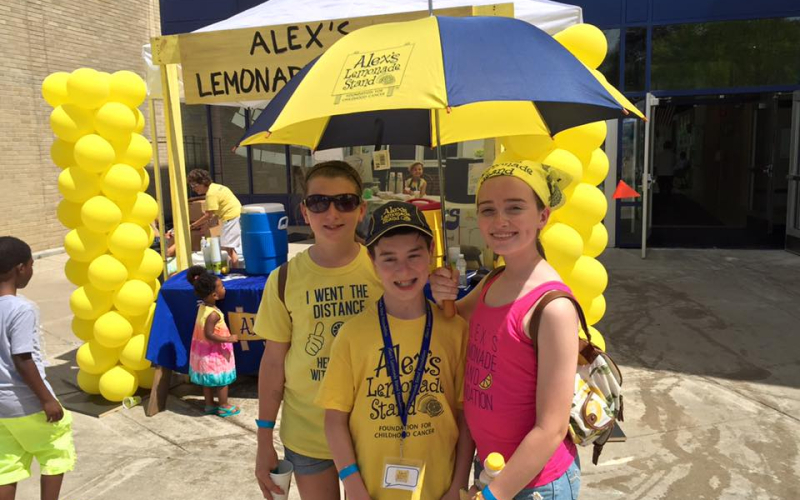
By: Trish Adkins
No one expects to find themselves in the childhood cancer world — Keren Fitzgerald certainly did not. Her son Cole, who passed away at age 19, was originally diagnosed with neuroblastoma when he was just 3 years old. In those early days, she had to Google “neuroblastoma” to understand all the new terminology. That search led her to Alex’s Lemonade Stand Foundation and helped give the Fitzgerald family a purpose outside of the hospital walls: to advocate for childhood cancer.
They know first-hand how desperately safer treatments and cures are needed. When Cole was diagnosed 15 years later with a different, aggressive rare cancer, there weren’t any clear treatment options for him.
“There is nothing more devastating than hearing that there no options available for a cancer your child is battling. We lost Cole after a valiant 18-month battle and our family is determined to help find cures for all cancers,” said Keren.
Research for pediatric cancer is consistently underfunded by the government. Most childhood cancer types are extremely rare, which presents challenges for researchers. But raising awareness and participating in advocacy can make a huge difference. Anyone and everyone can be an advocate for childhood cancer. Whether cancer has impacted you personally or you just want to make a different, you have the power to advocate and help make change for kids with cancer.
Here are six ways you can advocate for childhood cancer:
1. Share your why.
Why do you care about kids with cancer? Sharing your way is a great way to advocate. If you have a personal connection, tell your story. If your child is diagnosed, sharing their treatment journey can help people understand how much work is needed for better treatments and cares. You can share your story on social media and submit your childhood cancer hero story to the ALSF website.
2. Learn the facts.
Each year over 400,000 children around the world will be diagnosed with childhood cancer. Learn all the childhood cancer facts, share this infographic, and tell the world how childhood cancer impacts children everyday, everywhere. You can also subscribe to The Childhood Cancer Blog.
3. Build connections.
Advocacy is better together! Consider becoming an ALSF Ambassador and sharing your story at events in your community. You can also join the ALSF Hero Family community on Facebook to talk about ways to advocate for more research.
4. Educate the educators.
Have a child with cancer in school? A childhood cancer diagnosis can be difficult for teachers, administrators, and families to manage in a school setting. The ALSF School Guide is a comprehensive resource that parents can share with teachers and administrators to help them understand the impact of childhood cancer and the various supports children may need.
5. Host a Lemonade Stand (Or stop by one and say hello!)
You can turn your advocacy and awareness building into fundraising for childhood cancer research. Alex Scott, founder of ALSF, was just 4 years old when she hosted her first front-yard lemonade stand. You can host your own anytime (or during Lemonade Days in June!). ALSF has lots of great tips and tools for lemonade stand hosting, as well as a virtual fundraising page you can share with family and friends. Not interested in hosting? Well, use our lemonade stand finder to find a local stand and stop by, share your story and make a donation!
6. Get Your Workplace Involved.
Your company can help us find better treatments and cures for kids with cancer by hosting a variety of fundraising events and/or incorporating ALSF into existing employee programs. There are a variety of ways your company can make a difference through fundraising event or employer gift matching. ALSF has lots of ideas for how your company could get involved and help advocate for childhood cancer, here.
Has your family been impacted by childhood cancer? Some families want information and resources. Others want to learn how families, like them, are dealing with a diagnosis. Still others want to raise awareness and money for more research. We have it all. You can request a family information packet and also visit our family section on the website.

